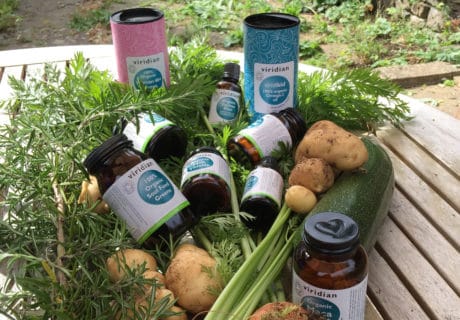When you’re sent to hospital for a procedure, or your child is due to start school, food is probably the last thing on your mind. Sadly, many vegans don’t have this luxury in situations where they have to rely on others to cater for them.
The number of vegans in Great Britain has quadrupled in the past four years, the vegan food selection on supermarket shelves has exploded, and nearly every café, pub and restaurant boasts a plant-based menu now. A vegan diet – one that avoids all animal products – is much better understood and frequently accommodated.
Protecting the rights of vegans
In a hospital, school or prison setting, vegans have to rely on what’s on offer and complicated food ordering procedures mean that suitable plant-based food isn’t always available. This sparked The Vegan Society to launch its Catering for Everyone campaign which aims to secure at least one vegan food option on every public sector menu every day.
We are petitioning the English, Scottish and Welsh governments to offer vegan options. Veganism has been found to come within the scope of international human rights provisions and vegans in the UK are protected under human rights and equality law, therefore they should already have the right to suitable, animal-free catering in public sector settings.
A Welsh hospital patient whose family lives far away admitted to ‘only eating crisps’ for up to four days at a time and discharging herself early so that she could go home and eat
This is not always enforced. While there are some positive examples, many hospitals, schools, universities, councils and prisons routinely fail to offer vegan food. A mother of a primary school child was told by the head teacher that veganism is not a ‘dietary requirement’ that should be catered for. A Welsh hospital patient whose family lives far away admitted to ‘only eating crisps’ for up to four days at a time and discharging herself early so that she could go home and eat.
The existence of the Vegan Hospital Food Network – a Facebook group of ordinary people who volunteer to take food to vegans who are in hospitals which fail to provide adequate nutrition – is a testament to how widespread the problem is. Vegan parenting groups are full of posts about unsuitable school menus at this time of year.
Benefits of ‘veganizing’ food options
Caterers perceive menu changes as expensive or challenging, but it doesn’t have to be either. The Vegan Society has produced plenty of resources to make the transition as smooth as possible, providing catering guides and free services of its in-house dietitian who can help with balanced meals and build vegan meal plans.
Many public sector canteens already have numerous vegetarian options, which can be easily ‘veganized’ with a few swaps. Meat, dairy and eggs are often the most expensive products in a customer’s basket, while foods like beans, legumes, vegetables and plant milks constitute particularly healthy, economical and planet-friendly options.
A strong vegan offering promotes sustainability, as Oxford University scientists found that avoiding meat and dairy is the single most effective action an individual can take to help the planet. Vegan food is also inclusive as it’s a suitable option for most dietary requirements, such as vegetarians, followers of certain religions, those with allergies and intolerances, and those who simply want to eat healthier.
Over a third of British consumers regularly have meat-free days for health reasons, according to an industry report, and a quarter cite environmental concerns. Both the British Dietetic Association and the American Academy of Nutrition and Dietetics recognize that totally plant-based diets are suitable for every age and life stage.
Staff working in hospitals, schools and prisons do not receive training on how to cater for vegans
It’s easy to produce tasty options that are rich in fibre and low in saturated fat, which provide multiple servings of fruit and vegetables, and exclude processed meat – which the World Health Organisation has classified as a cause of cancer. Some research has linked vegan diets with lower blood pressure and cholesterol, as well as lower rates of heart disease, type 2 diabetes and some types of cancer.
Lobbying the government
Offering vegan options is a win across many dimensions for public sector organizations, which would be making their menus inclusive, environmentally-friendly, healthy and cost-effective. Portugal has introduced legislation compelling all public sector canteens to provide a vegan option on their daily menus, and The Vegan Society plans to make the UK follow suit.
Veganism has grown in popularity but some concepts are still not widely understood. Staff working in hospitals, schools and prisons do not receive training on how to cater for vegans, and there isn’t much support out there. This is why The Vegan Society developed brilliant resources and offers free assistance; there’s no excuse for public sector caterers not to offer vegan options as standard.
Please sign our petitions now to make sure that no vegan in a public sector institution goes hungry again.





